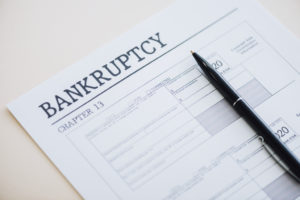What Bankruptcy Can and Cannot Do

Bankruptcy can be a practical solution for people with problematic debt. It can also help them hold onto important assets, rebuild their credit, and find a stable financial path forward. However, bankruptcy has limitations that you need to understand if you’re seeking debt relief. At Sasser Law Firm, we can help.
Our North Carolina bankruptcy attorneys have over 20 years of experience working exclusively in bankruptcy law. We have three board-certified bankruptcy specialist attorneys on our team, providing us with insight into this area of the law. Whether you need to pursue personal bankruptcy, commercial bankruptcy, or bankruptcy litigation, our team may be in a position to assist you.
So, how does bankruptcy work? Keep reading to learn more. For a free and personalized consultation, call or contact us today.
What Does Bankruptcy Do?
Bankruptcy can be a powerful solution to some debt problems. It can:
● Put an automatic stay in place: People facing debt can be subject to repossession, lawsuits, foreclosure notices, and collection calls and letters. The automatic stay forces contact to stop. From the moment someone files a bankruptcy case, creditors must cease their collection efforts. This includes a stay on any efforts to foreclose on the property.
● Discharge certain types of debt: Bankruptcy can eliminate many categories of debt, including medical bills, personal loans, and credit card debt.
● Reduce or restructure certain types of secured debt: If you owe more on something than it’s worth, bankruptcy may allow you to reduce or restructure the debt to make it more manageable.
● Allow you to keep the specific property. Bankruptcy law allows filers to exempt various interests in property such as vehicles, personal items, and some equity in a home. In chapter 7, non-exempt assets are subject to liquidation. In chapter 11 and 13, non-exempt assets can be retained.
What Can Bankruptcy Not Do?
While bankruptcy has many advantages, it is not a cure-all. Here are answers to common questions about the limitations of bankruptcy.
What does filing for bankruptcy do?
Bankruptcy provides financial relief to debtors with unmanageable debt. The type of relief you receive depends on the type of bankruptcy you file. Chapter 7 bankruptcy allows you to eliminate certain debts but non-exempt assets are subject to liquidation. Chapter 13 bankruptcy allows you to restructure your debts and create a more manageable repayment plan over a period of time not to exceed five years.
Does chapter 7 bankruptcy clear all debt?
No. Some debts cannot be discharged in chapter 7, including:
● Alimony
● Many forms of non-support martial debt
● Child support
● Criminal restitution
● Most student loans
● Court fines
● Some tax debts
● Debt incurred by fraud, defalcation of fiduciary duty and willful & malicious injury
Is the chapter 13 discharge more expansive than the chapter 7 discharge?
Yes. Non-support marital debts can be discharged in chapter 13 and the exception for willful or malicious injury is limited to that which causes personal injury or death. Also, in chapter 13, certain debts that might not discharge (e.g. recent income taxes or delinquent domestic support) can be provided for and paid through a chapter 13 plan such that the debt will not exist at the end of a successful case.
Will my credit score suffer?
Many people wonder, “What does declaring bankruptcy do to my credit score?” If your credit score is good prior to bankruptcy then you will see a reduction in your credit score after filing for bankruptcy. If your credit score prior to filing then the impact may be minimal. Regardless, you can work to rebuild your credit and increase your score over time. As compared to unresolved defaulted debt, bankruptcy may provide a superior approach to rebuilding your credit.
Remember there are many variables depending on the type of bankruptcy you seek and the type of debt you’re facing. If you have questions about your situation, speak with an attorney.
Contact an Experienced Bankruptcy Attorney in Cary, NC Today
If you’re considering bankruptcy or facing an emergency like foreclosure or car repossession, put Sasser Law Firm to work for you. The firm has filed over 9,000 cases for individuals and businesses throughout North Carolina. Call or contact us today to get started.
- About the Author
- Latest Posts
For more than 20 years, the Sasser Law Firm has been helping individuals and business owners sort through financial hardships to see the light at the end of the tunnel. Our North Carolina bankruptcy attorneys are all board-certified specialists, which means we have passed a complex exam, undergone a thorough peer review, and continue to earn legal education credits in this ever-evolving area of law.














